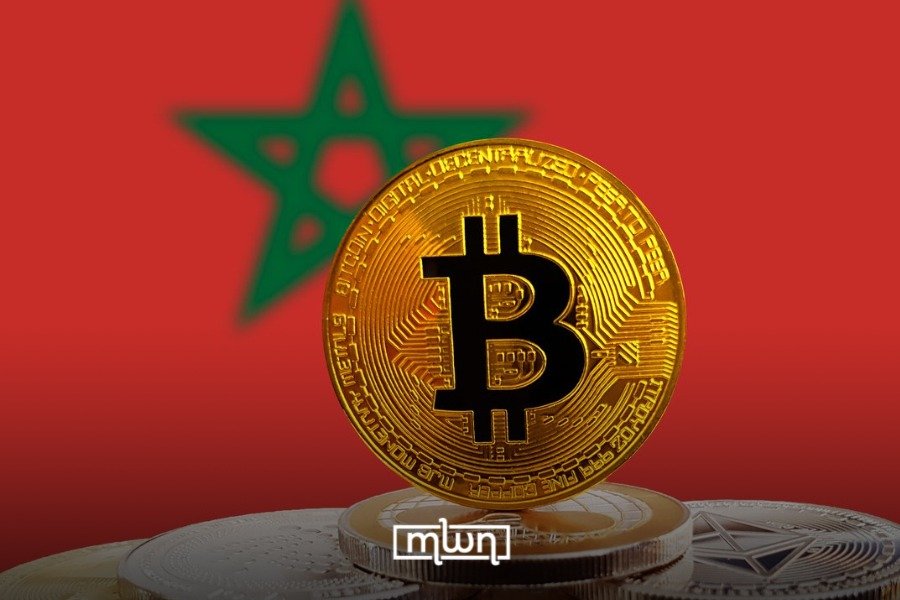Rabat – Morocco is looking to take a decisive step in regulating digital assets. The Ministry of Economy and Finance has published Bill 42.25, a new draft law outlining a regulatory framework for digital assets and decentralized finance in Morocco.
This comes against a background of a countrywide prohibition of all transactions related to cryptocurrency as provided under its law regulating the country’s foreign exchange, with public interest in digital currencies having continued to proliferate.
According to the presentation note of the Ministry’s act, this legislation aims to achieve or promote four objectives: protecting investors, ensuring integrity and combating fraud and money laundering in markets, fostering innovation in digital/financial sectors, and safeguarding financial stability.
The bill, prepared in partnership with Bank Al-Maghrib (BAM) and the Moroccan Capital Market Authority (AMMC), aligns with IMF, BIS, and FATF recommendations on money laundering and terrorism-financing risks.
From informal market to structured oversight
Under this draft law, crypto-assets are considered as digital representations of value or rights that are transferable through a blockchain or distributed ledger technologies. This includes basic activities such as issuance, public offerings, trading, custody, and advisory services—establishing clear boundaries and responsibilities across the sector.
Two types of tokens are affected by these regulations. First, utility tokens, which represent a means of accessing a good or a service provided by a user or issuer.
Second, asset-referenced tokens, also known as stablecoins, whose value is pegged against an official currency or an aggregation of assets. Excluded from the new law are CBDCs, NFTs, and cryptocurrency mining.
The act does not legalize the use of cryptocurrencies as a form of payment. Rather, it treats crypto-assets as a separate category of financial assets that will only be managed by authorized service providers within the framework of Moroccan monetary rules.
This is a clear sign of the government’s intent to regulate innovation without undermining the country’s control of its money.
Shared supervision between AMMC and BAM
Under draft legislation, supervision is shared between the two main finance regulators in the country.
The AMMC will oversee the issuance and offering of tokens, licensing of crypto-assets service providers (CASPs) in relation to platforms for possible compliance.
This also covers its mandate in fighting insider trading, market manipulation, and the spread of misleading information that constitute offenses with penalties.
Bank Al-Maghrib has pledged to regulate the use of stablecoins as well as monitor all related flows of asset-backed tokens. In particular, the central bank will make sure that all stablecoins are supported by robust and liquid assets and that all redemption facilities are transparent and trustworthy.
In terms of compliance insurance, a new body, the National Financial Intelligence Authority (ANRF), will supervise anti-money laundering and combating terrorist financing regulations (AML/CFT).
For all service providers, identifying clients, recording data for transactions for a period of ten years, and reporting suspicious transactions remain mandatory.
Finally, a new national coordination system involving BAM, AMMC, ACAPS, the Treasury, and Data Protection Authority (CNDP) will ensure coordinated implementation of policies and adaptation to regulations.
Licensing, transparency, and investor protection
This law also brings in a licensing regime that all firms have to adhere to in terms of huge capital, control, as well as risk management. Prior approval must take place in addition to setting in-house controls and fulfilling AML/CFT regulations.
Transparency toward clients is a cornerstone of the framework: licensed entities must disclose all applicable fees, the risks associated with each product, and publish a detailed white paper outlining the characteristics of every issued token.
This regulatory framework aims to professionalize a market that too often operates based on speculation and misinformation.
Strong sanctions and a measured opening
This act also brings in a three-level system of punishment for market abuse, including disciplinary, financial, and criminal offenses, to deter such conduct.
Violations like insider trading, price manipulation, or publishing misleading information will be punishable by heavy fines or imprisonment in serious offenses. Suspension or revocation of licensing will be acted in case of misconduct.
With the influence of the European Union’s regulatory law MiCA, which came into effect in 2024, the regulatory framework in Morocco is cautious and vision-focused. It welcomes innovation while ensuring it is under strict supervision. And it will initially be limited to licensed corporate entities as opposed to individuals.
This draft law puts Morocco at the forefront of crypto regulation in Africa, marking not only a recognition of embracing a digital economy but also a recognition of prudence.
Read also: Inside Morocco’s Crypto Paradox the Bitcoin Remains Prohibited Yet Growing

